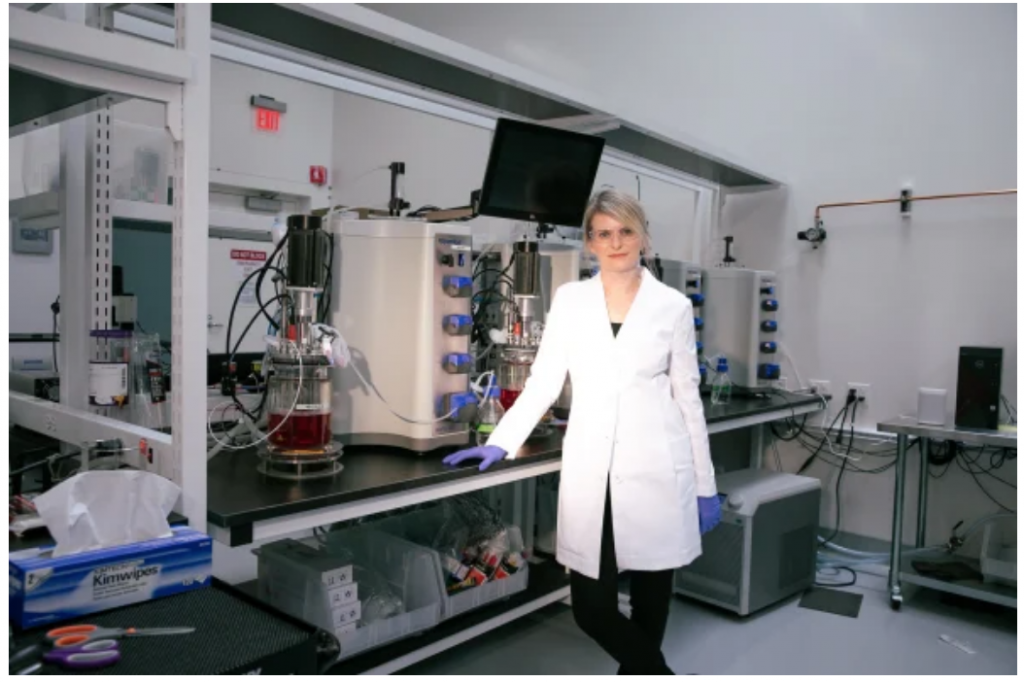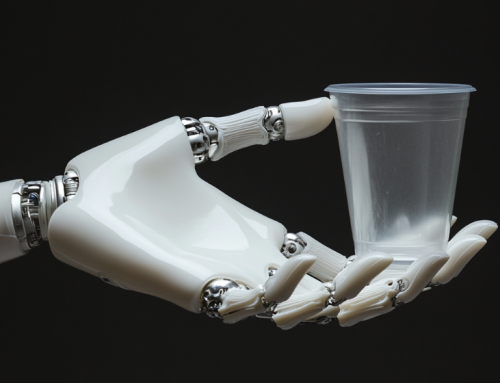
Kasia Gora, co-founder, and chief technology officer of SciFi Foods. (Source: SciFi Foods)
CRISPR AI Dramatically Lowers Cost of Producing Lab-Engineered Meat Products
The social media/pop culture term “cringe” could be applied to this story about how lab-grown sausage will soon be made.
Just last summer, SciFi Foods raised $22 million in investments to grow meat in a lab. The company is now valued at $100 million overall. Gene-edited, scientifically grown meat cells are being produced by CRISPR, a genome editing technology.
Cringe.
Joshua March, CEO, co-founded SciFi Foods (formerly Artemys Foods), as a cultivated meat startup based in San Leandro, an industrial town east of San Francisco. He’s the business guy in a sector that may never come to fruition, but he’s convinced investors that one day, in our nebulous future, it will. This is the fourth company he’s led. The last one, Conversocial, helped companies manage customer service via social channels and was acquired for $50 million.
Larissa Zinberoff drew the assignment to write for fastcompany.com about the latest research to grow meat in a Petri dish, so to speak. It’s actually much more complex than that.
Unlike virtually every other startup in the space—and according to the Good Food Institute, there are 152 cultivated meat companies as of the end of 2022 operating in 29 countries—March and SciFi are using CRISPR (the technology that makes gene editing as easy as using a 3D printer) to hasten its advances.
To Kasia Gora, SciFi’s CTO, it’s merely an engineering challenge.
“We take a synthetic biology approach to figuring out how to make scalable beef cell lines,” she tells me. The key is engineering cycles that enable rapid prototyping. The best cell lines will go on to create the next round of modifications.
Are you creeped out yet? Or maybe you would like to pass on lunch?
Not Enough Cows
The idea of course is not unfounded. The amount of water used in ranching cattle as well as the other costs of raising them has helped push the price of beef to all-time highs. And whether it’s the cost of the science or the equipment needed to grow meat cells this is not an inexpensive proposition. But it could be a financially rewarding one.
The article explains the process and the required steps that still need to be taken in order to make this an everyday product at your local grocer. Some scenarios say the grown meat will be mixed with plant-based meat. The mixture proved to be very tasty according to the author of the article and a scientist that was asked to join the research team.
“Last May, I tasted two burgers side by side. One that was SciFi’s own plant-based patty, and the same but with its cultivated beef cells, at a cost of around $250 for me to eat. Both were equally tasty—fatty, good texture, savory umami flavor—but I couldn’t tell which had the costly lab-grown meat tucked inside,” said Zinberoff.
SciFi CEO picked Harold McGee, one of the seminal people to advance our understanding of the science underpinning what we eat, to be a culinary advisor. McGee wrote the bible on the chemistry of how we prepare food in On Food and Cooking: The Science and Lore of the Kitchen, which was first published in 1984. Here is McGee’s take:
“This just seems like the next thing,” McGee says. “Maybe not the next thing but a parallel effort that is interesting. When I was approached to participate I was very happy to.”
Researchers have warned of the potential heart damage of eating red meat for years, but I still cringe at the thought of gene-edited lab-grown meat. For others, perhaps it will provide delicious protein and nutrition—without killing a cow.
read more at fastcompany.com







Leave A Comment